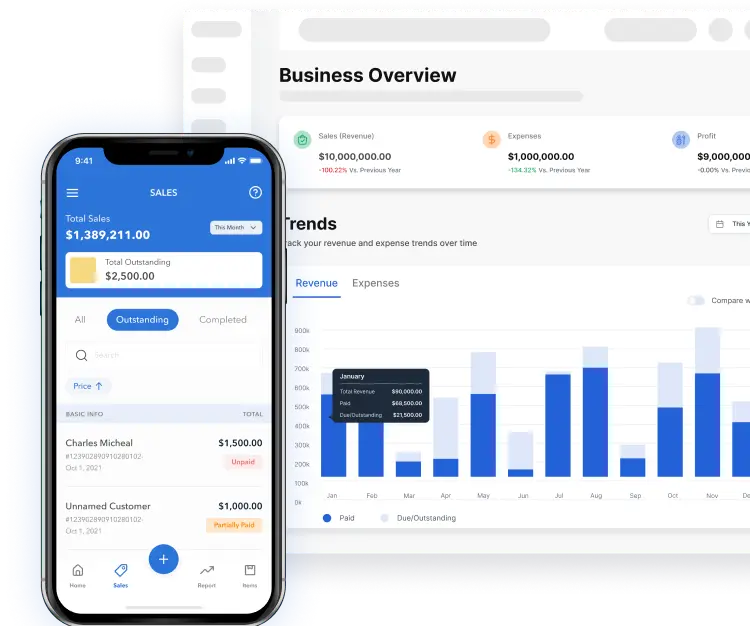Managing finances can be challenging for entrepreneurs, especially when personal and business funds become entangled. While it may seem convenient to use a single account for everything, this approach can lead to significant problems. Separating personal and business finances is essential for maintaining clear records, ensuring legal protection, and managing tax obligations. In this blog, we’ll explore why keeping these finances apart is crucial, the consequences of mixing them, and provide seven tips to help you stay organized. We’ll be discussing:
- Why It’s Important to Separate Personal and Business Finances
- Consequences for Mixing Personal and Business Finances
- 7 Tips to Keep Business and Personal Finances Separate
Why It’s Important to Separate Personal and Business Finances

- Legal Protection and Liability
One of the main reasons for separating personal and business finances is to ensure legal protection. If you operate a limited liability company (LLC) or corporation, mixing funds can pierce the corporate veil. This means you could be personally liable for business debts or lawsuits, putting your assets like your home or car at risk. - Tax Clarity
Keeping separate accounts simplifies the tax filing process. Mixing business transactions with personal ones makes it harder to track deductible expenses and may cause you to overlook certain deductions. Moreover, in the case of an audit, clear separation demonstrates professionalism and transparency to tax authorities. - Professionalism and Credibility
When clients, partners, or investors see that you manage your business finances separately from your personal accounts, you reinforce trust and credibility.It shows that you are serious about your business, which can be an important factor when building partnerships or securing loans. - Accurate Financial Tracking
Clear and separate financial records help you track business performance more effectively. Without mixing personal and business transactions, you’ll be able to review your profit margins, expenses, and cash flow easily. This accurate tracking ensures that your financial decisions are based on real data rather than assumptions. - Simplified Accounting
Managing separate accounts makes bookkeeping easier. It ensures that you track all business-related transactions efficiently, reducing the chances of errors or missing important transactions. When it’s time to create financial statements or reports, you’ll have all the data at your fingertips.
Consequences of Mixing Personal and Business Finances
- Confusing Records
When personal and business finances are mixed, keeping track of your financial records becomes difficult. You might end up paying personal expenses from your business account, making it hard to know how much money the business is truly making or spending. - Tax Complications
Combining personal and business expenses makes tax filing more complicated and increases the chances of making errors on your returns. You might miss out on deductions, and in some cases, you could face penalties for improperly filed taxes. - Risk of Legal Issues
If you are ever sued or audited, the lack of separation between your personal and business finances could jeopardize the limited liability protections offered by an LLC or corporation. Courts may view your business as an extension of your personal affairs, making you personally responsible for the company’s debts or liabilities. - Cash Flow Management Issues
When personal and business finances are intertwined, it becomes difficult to gauge the true financial health of your business. This confusion could lead to poor cash flow management, where personal spending impacts the funds available for your business operations. - Reduced Creditworthiness
Lenders and investors are more likely to view your business as a serious and professional entity if its finances are kept separate from your personal finances. Failing to do so can harm your chances of securing loans or attracting investors.
7 Tips to Keep Business and Personal Finances Separate

- Open a Separate Business Bank Account
One of the simplest and most effective ways to separate your finances is by opening a business bank account. This ensures that all business income and expenses are funneled through a distinct account, making tracking and reporting much easier. - Apply for a Business Credit Card
A business credit card can help you separate personal and business expenses, and it also helps build your company’s credit history. Additionally, using a business card allows you to easily identify and categorize business-related expenses for tax and bookkeeping purposes. - Set Up a Payroll System for Yourself
If you’re a sole proprietor or a business owner, pay yourself a salary instead of using your business account as a personal ATM. Establishing a regular payroll helps maintain a clear distinction between personal and business income. - Keep Business Receipts Organized
It’s essential to retain records of all business transactions. Use software or a dedicated filing system to keep business receipts separate from personal ones. This helps you maintain accurate records for tax deductions and business expenses. - Track Your Cash Flow Separately
Always make sure to track your personal and business cash flows separately. Using accounting software or hiring a professional accountant lets you monitor where the money comes from and where it’s spent in both areas of your life. - Consult a Financial Advisor
Consulting with a financial advisor can provide insights on how to structure your finances to maximize efficiency and security. They can help you implement systems to ensure that personal and business accounts stay separated. - Review Your Accounts Regularly
Regularly reviewing your accounts helps you catch any errors or missteps in separating personal and business transactions. Conducting monthly reviews of your finances helps ensure no lines are crossed between your personal and business funds.
Conclusion
Separating your personal and business finances is essential for protecting yourself legally, simplifying taxes, and maintaining accurate financial records. Failing to keep these finances apart can lead to legal liabilities, tax complications, and confusion about your business’s financial health. By following best practices, such as opening a separate business bank account and keeping organized records, you’ll position yourself better for financial success. Whether you’re just starting or have an established business, these steps can help ensure smooth financial management and long-term growth
Related Content






